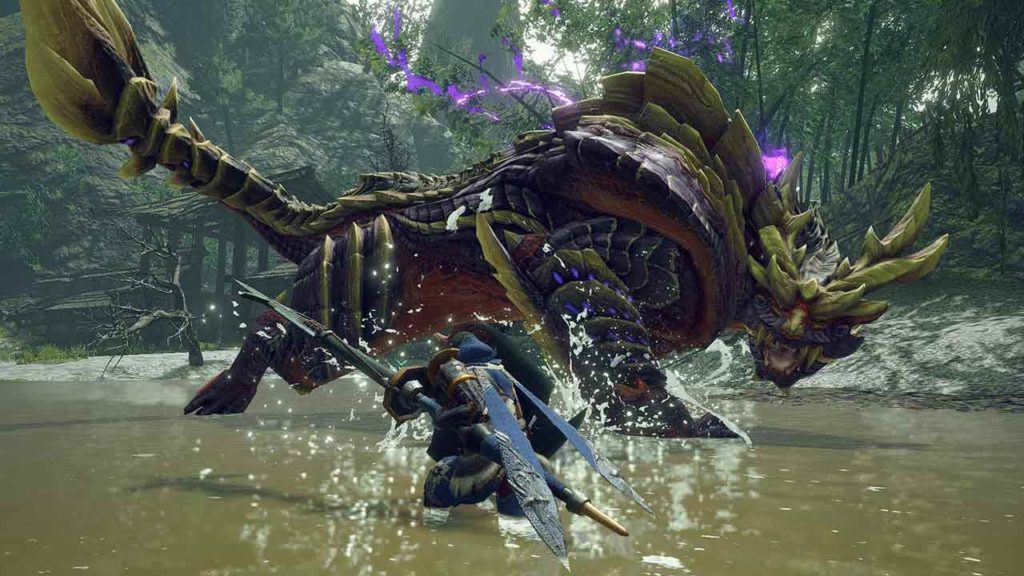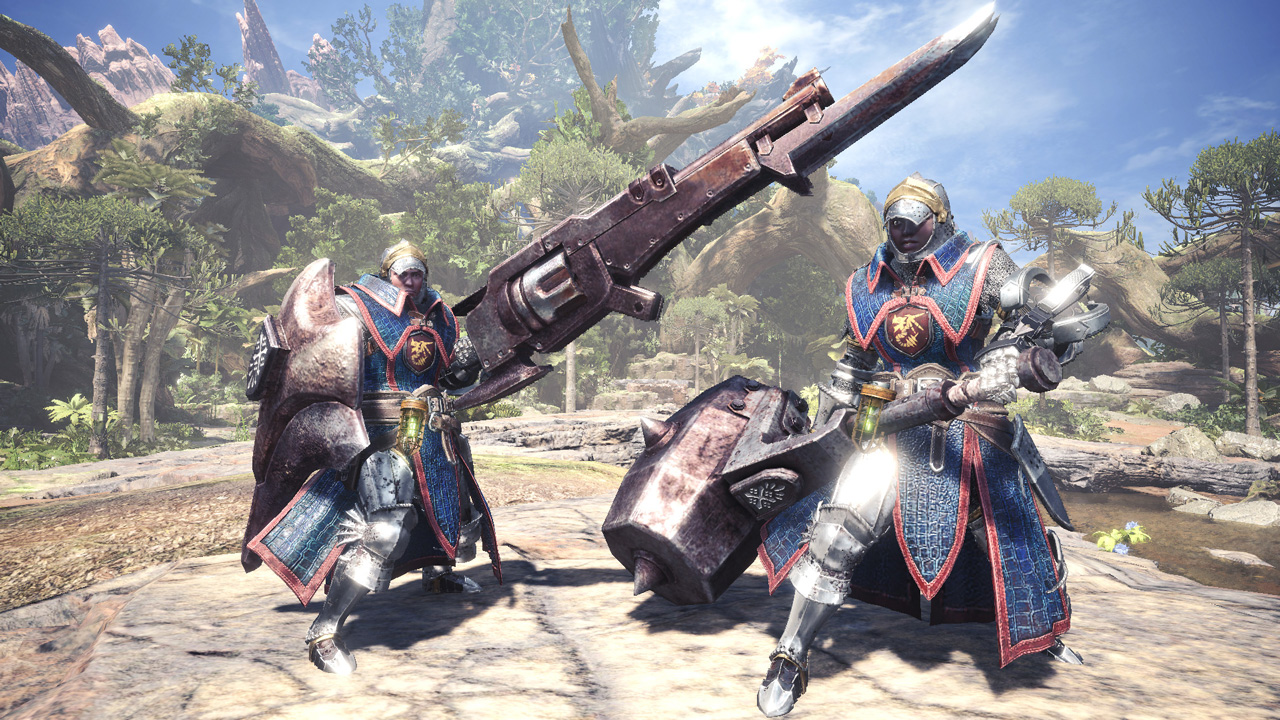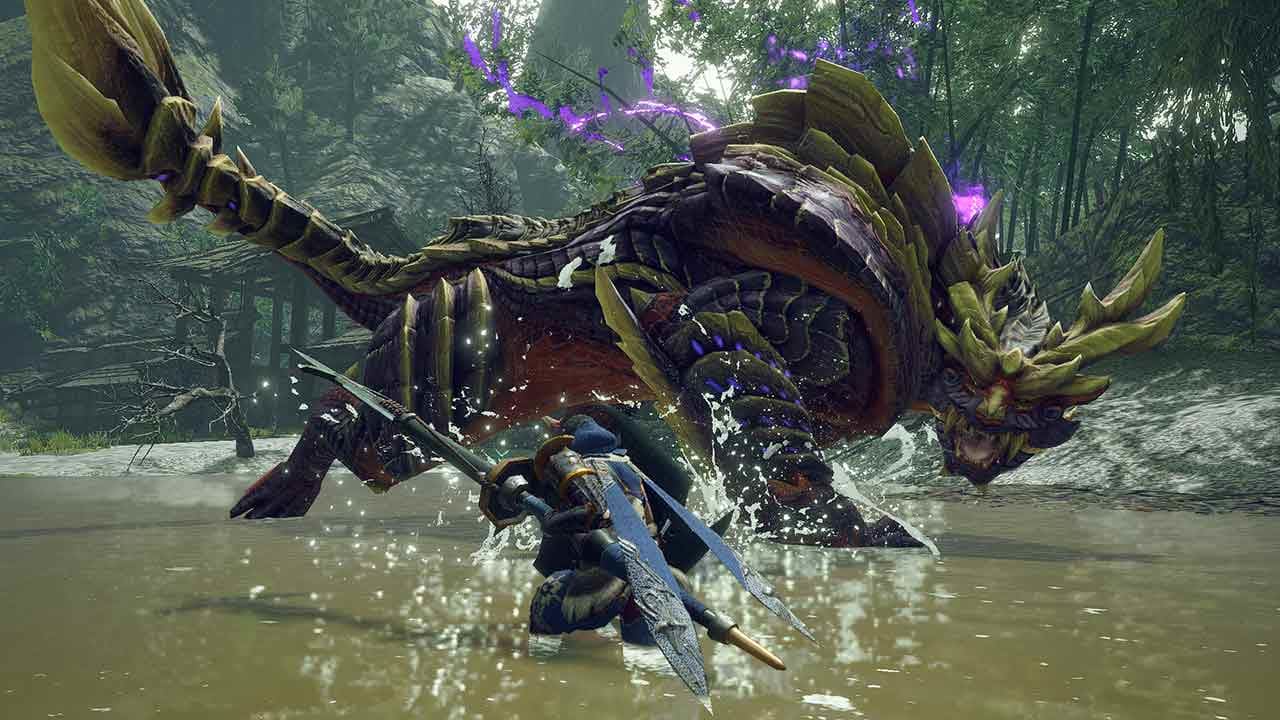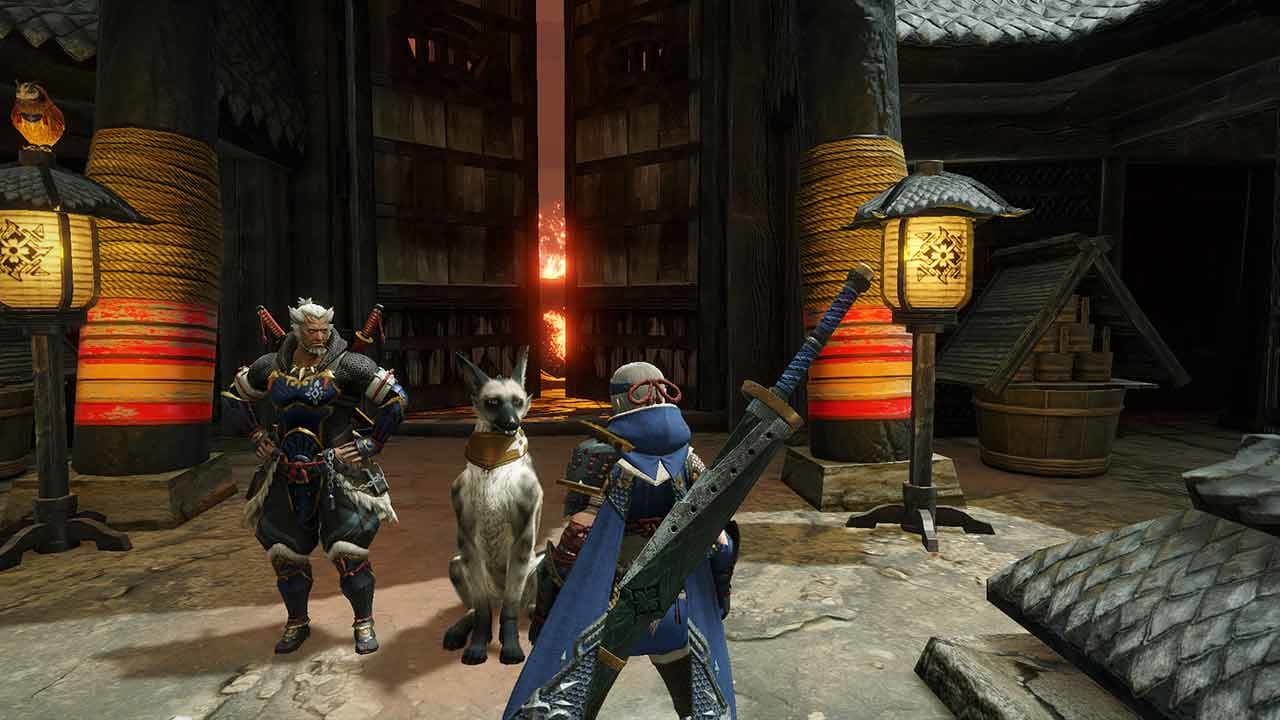
Monster Hunter’s Colonialism Reveals the Shallowness of its World
Monster Hunter’s characters have never mattered as much as its proud cast of creatures. At present, the characters that I spent 300-plus hours fighting alongside in Monster Hunter World are scattered in the far corners of my brain, lost in a blur of two-dimensional action hero archetypes and catchphrases I’d rather forget. I fear the same will happen with Monster Hunter Rise’s characters. As much as I adore Yomogi the dango chef or the eclectic twins that dole out quests, they’re really little more than stepping stones, meant to prepare and then propel you on your way to the showdown against monstrous creatures.
Monster Hunter can make its characters matter by having them examine the impact they have on the world surrounding them. At present, World and Rise’s characters are always looking outward and onward, studying and pondering upon the world surrounding them, and how they’re going to deal with problems that arise in the open world. Introspection isn’t necessarily the mark of a great character, but for Monster Hunter’s motley crew, it’d certainly make a marked improvement.

World’s in-game land isn’t called “the new world” by accident. It’s very purposefully an enigmatic new land full of mystery and intrigue, where humankind isn’t necessarily welcome. Throughout World’s 100-plus hours and scores of story missions, our fleet of humans are desperately trying to make their mark on the land and call it their own, fending off vicious monsters and in particular tyrannical Elder Dragons that threaten to upset the ecology of this strange new world. It is, in short, a tale of colonialism.
Not once does any human character in Monster Hunter World stop for a bit of self-reflection. World’s characters are ultimately very short-sighted, charging into the new world with the energy of conquerors, convinced that their actions are for the benefit of the world surrounding them. No one ever pauses for a moment to wonder if they really should be there, but instead hypothesizes how they can best take advantage of the surrounding scenery and bend the local wildlife to their will, all for their own benefit.
When a Nergigante is seen patrolling the nearby skies, or when a Barroth is sighted rolling around in the mud, it’s up to the fearsome hunters of the Fifth Fleet to take charge and put the beast down. No questions asked, no moral quandaries raised. The act of charging forward into a strange land, disrupting any native humanoids and wildlife for your own gain is the purest form of colonialism. Monster Hunter World might take place worlds away, and the natives might chiefly be fire-breathing dragons, but the purposes and the results on the human’s part is very much the same.

Fast forward three years to Monster Hunter Rise, and things are a little different this time. There’s no longer the headlong charge of an entire fleet of humans into a strange new world, with sprawling towns to defend in the process. This time, the action is largely confined to a quiet little town in the ass-end of nowhere, cut off from the rest of civilization. With Rise, the humans are apparently just looking to survive, having established their sleepy town where everyone knows everyone and apparently everyone exists on a diet of dango.
Monster Hunter Rise puts the humans on the back foot, having them react to the advance of other monsters in horde-style “Rampage” missions instead of actively going out into the world and seeking destruction. This time, Rise tells us that we’re actually trying to defend what is already ours, letting us get to know our fellow hunters and adventurers around Kamura Village, before telling us that we’re being actively threatened and hunted by a potential onslaught of monsters that threaten to stamp out the very village we’ve come to adore.

It’s an entirely different prelude to the fights themselves, but the reasoning for fighting still lacks that same sense of self-reflection that Monster Hunter World never strived for. All we’re told at the outset of Monster Hunter Rise is that humans have always existed here: this is our village, our turf, and we’re going to defend it. There’s no probing line of questioning into what us humans are doing here in the first place, nor are there ever questions of retreat and sustainability for the local wildlife raised.
Monster Hunter Rise clearly sidesteps the issues of World’s colonialism that were very much front and center three years ago in 2018. Rather than confront the issue of the impact of humanity on the monsters that they coexist with, Rise sends its plot off on an entirely different tangent, trying to downplay World’s issues and themes by setting up smaller-scale action with more personal stakes for the humans involved. Rise’s story puts us humans in a very different situation to those of World, but the outcome is still the same: bring nature around you to heel for the purpose of your own survival and the gain of others alongside you.
Wherever the future of Monster Hunter might take us after Monster Hunter Stories 2: Wings of Ruin later this year, it’s time for our band of hunters to start examining and reflecting on the destruction they’re leaving in their wake, and asking bigger questions of what they can do affect this cycle of hunt, kill, repeat.





